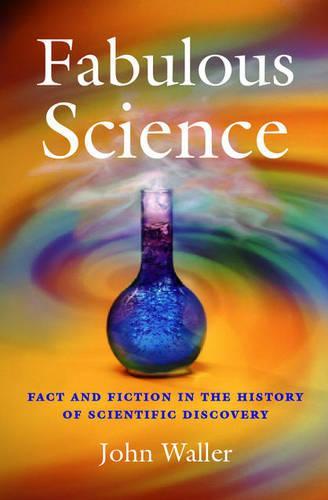Overview
The great biologist Louis Pasteur suppressed 'awkward' data because it didn't support the case he was making. John Snow, the 'first epidemiologist' was doing nothing others had not done before. Gregor Mendel, the supposed 'founder of genetics' never grasped the fundamental principles of 'Mendelian' genetics. Joseph Lister's famously clean hospital wards were actually notorious dirty. And Einstein's general relativity was only 'confirmed' in 1919 because an eminent British scientist cooked his figures. These are just some of the revelations explored in this book. Drawing on current history of science scholarship, Fabulous Science shows that many of our greatest heroes of science were less than honest about their experimental data and not above using friends in high places to help get their ideas accepted. It also reveals that the alleged revolutionaries of the history of science were often nothing of the sort. Prodigiously able they may have been, but the epithet of the 'man before his time' usually obscures vital contributions made their unsung contemporaries and the intrinsic merits of ideas they overturned. These distortions of the historical record mostly arise from our tendency to read the present back into the past. But in many cases, scientists owe their immortality to a combination of astonishing effrontery and their skills as self-promoters.
Full Product Details
Author: John Waller (, Lecturer in the History of Medicine, University of Melbourne)
Publisher: Oxford University Press
Imprint: Oxford University Press
Dimensions:
Width: 12.90cm
, Height: 1.70cm
, Length: 19.70cm
Weight: 0.359kg
ISBN: 9780198609391
ISBN 10: 0198609396
Pages: 320
Publication Date: 25 March 2004
Audience:
College/higher education
,
Professional and scholarly
,
Undergraduate
,
Professional & Vocational
Format: Paperback
Publisher's Status: Active
Availability: To order

Stock availability from the supplier is unknown. We will order it for you and ship this item to you once it is received by us.
Reviews
Review from previous edition Waller writes with clarity and flair ... [he] has a real talent for telling a story. Roy Porter Everyone with an interest in science should read this book. Focus a great read Nature Waller tells these stories well ... [his] examples are a valuable look sideways at the rolling juggernaut of modern science. Martin Ince, New Scientist
`Review from previous edition Waller writes with clarity and flair . . . [he] has a real talent for telling a story.' Roy Porter `Everyone with an interest in science should read this book.' Focus `a great read' Nature `Waller tells these stories well ... [his] examples are a valuable look sideways at the rolling juggernaut of modern science.' Martin Ince, New Scientist
`Review from previous edition Waller writes with clarity and flair . . . [he] has a real talent for telling a story.' Roy Porter `Everyone with an interest in science should read this book.' Focus `a great read' Nature `Waller tells these stories well ... [his] examples are a valuable look sideways at the rolling juggernaut of modern science.' Martin Ince, New Scientist
Waller tells these stories well ... [his] examples are a valuable look sideways at the rolling juggernaut of modern science. * Martin Ince, New Scientist * a great read * Nature * Everyone with an interest in science should read this book. * Focus * Review from previous edition Waller writes with clarity and flair . . . [he] has a real talent for telling a story. * Roy Porter *
Author Information
John C. Waller was born in England in 1972. He gained a 'double first' in Modern History at the University of Oxford and went on to take Masters degrees in Human Biology and the History of Science and Medicine. He completed his Ph.D. in the History and Philosophy of Science at University College London in 2001. He is now a Lecturer in the History of Medicine at the University of Melbourne, Australia.



